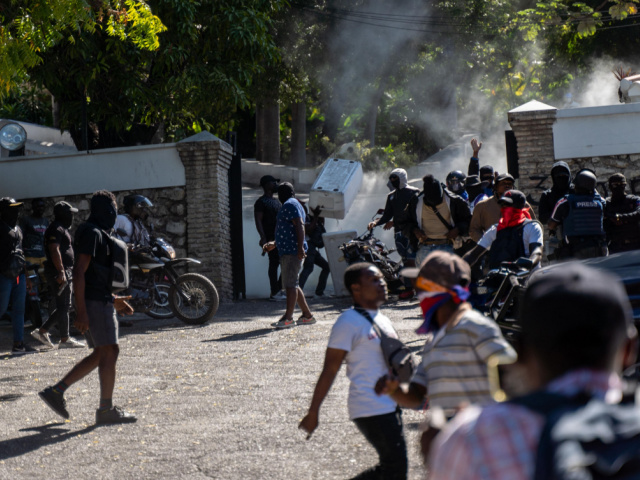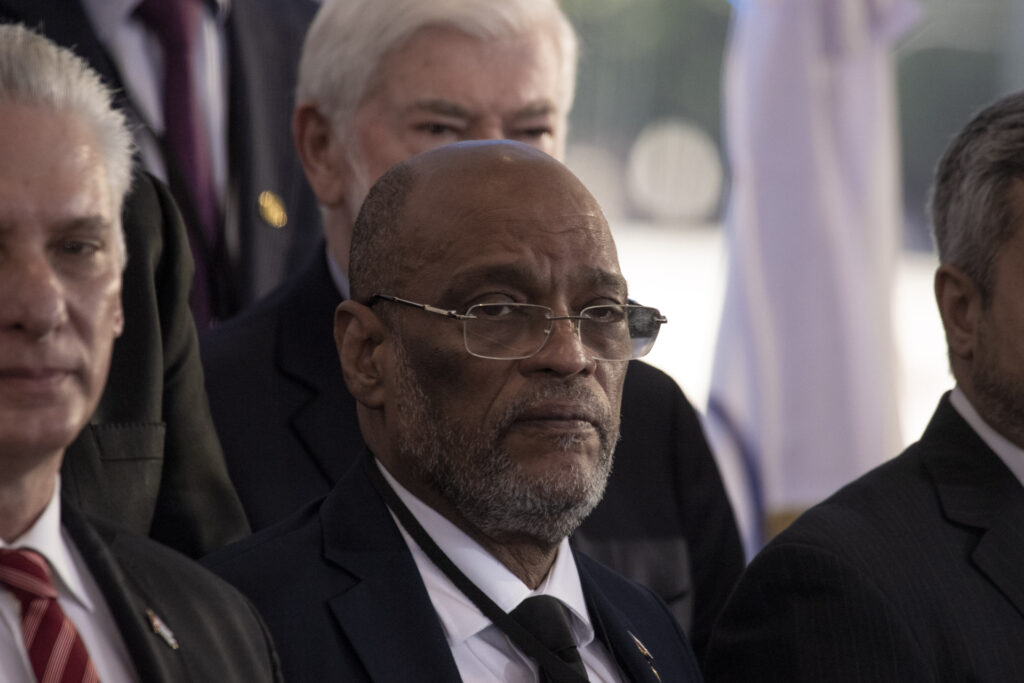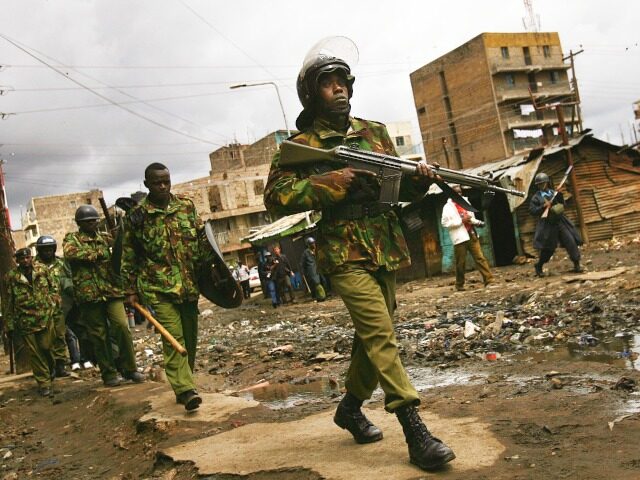Kenyan Foreign Minister Alfred Mutua said Sunday that his government will lead the long-discussed multinational intervention force in Haiti and send a thousand police officers to “train and assist the Haitian Police to restore normality in the country and protect strategic facilities.”
Mutua said the deployment would not occur until “a mandate from the U.N. Security Council is obtained” and “other Kenyan constitutional process[es]” have been completed.
U.N. approval should not be hard to come by. Secretary-General Antonio Guterres has been calling for an intervention force ever since Haitian President Jovenel Moise was assassinated in July 2021, unleashing a wave of anarchy and gang violence that made an already dire humanitarian crisis even worse.
Gangsters and warlords have taken over most of Haiti, seizing crucial infrastructure and interfering with humanitarian aid shipments. Many Haitian police officers have been brutally murdered by gangs, a situation that prompted the police themselves to hold violent demonstrations in January 2023, including an assault on the residence of Prime Minister Ariel Henry.

Haitian Police officers besiege the official home of the prime minister during a demonstration after the death of six police officers in Port-au-Prince, Haiti, on January 26, 2023. (RICHARD PIERRIN/AFP via Getty Images)
Guterres made several pleas for intervention in July, including a request for the U.N. Security Council (UNSC) to “authorize the immediate deployment of a robust international security force.”
“I call on those states that have the capacity to provide a robust security force to stop hesitating and be ready to follow a Security Council decision. Every day counts. If we don’t act now, instability and violence will have a lasting impact on generations of Haitians,” the secretary-general said at the beginning of July.
“We must put Haiti on the international political map and make the tragedy of the Haitian people the international community’s top priority,” he said.
Absolutely no one was eager to answer Guterres’s call, including the Biden administration, which was overheard muttering that some other nice country like Canada should consider taking the lead role in Haiti. Canada politely ignored this suggestion, leaving only Jamaica and El Salvador to offer boots-on-the-ground support — although El Salvador hastily added that it has few officers to spare because it has a massive gang problem of its own to deal with.
As Deutsche Welle (DW) noted on Sunday, Haiti is a notorious quagmire with a barely-functional government, and its citizens are inclined to distrust foreign peacekeepers, especially after a U.N. peacekeeping mission unleashed a deadly cholera outbreak in 2010, killing some 10,000 Haitians.
Haitians are also likely to distrust a multinational intervention force because they will believe its true goal is propping up Henry, who took power after Moise was murdered and has not been eager to hold elections. The last remaining elected officials in Haiti resigned in January 2023, leaving citizens even less confident in the legitimacy of Henry’s government.

Ariel Henry, Haiti’s prime minister, during a group photograph at the Celac Summit in Buenos Aires, Argentina, on January 24, 2023. (Anita Pouchard Serra/Bloomberg via Getty Images)
Mutua said Kenya was willing to step forward with a sizable force commitment in order to “show solidarity with people of African descent around the world.”
Assuming the rest of the Kenyan government signs off on the effort, Mutua said it would begin with a “special team” of Kenyan police visiting Haiti within the next few weeks to perform an “evaluation mission.”

COMMENTS
Please let us know if you're having issues with commenting.